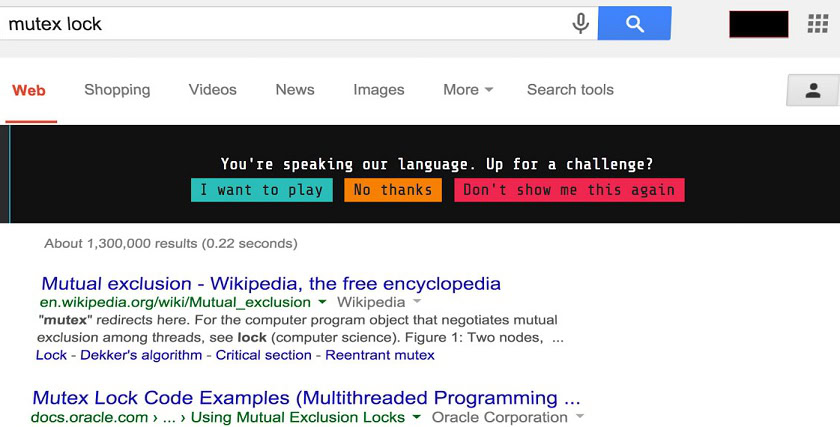Affiliate links on Android Authority may earn us a commission. Learn more.
Google uses Search as a secret job interview tool

Google is well known for its love of puzzles and leaving little hidden secrets dotted around and it turns out that the company applies similar techniques while it is on the hunt for new employees too.
Max Rosett, a new Google employee, blogged about his recent recruitment experience at the tech giant on The Hustle, revealing an interesting use of its own search engine to hire him. The story begins with Rosett searching for a solution to a coding problem he was working on. Upon entering his query “python lambda function list comprehension” into Google, he was greeted with a response that read: “You’re speaking our language. Up for a challenge?”

From there Rosett was led to google.com/foobar, a programming test used by Google to find suitable candidates a number of times in the past. Here he was given a series of coding challenges to complete every couple of days, before being asked to get in contact with the company.
“For my interview, I spent a day at Google headquarters in Mountain View solving problems on a white board.”
After passing through the rest of Google’s recruitment process, he was offered a job three months later. Rosett thinks quite highly of the tactic, as it reached out to him without Google even having to contact him directly. It’s certainly an interesting way to find potential new employees and seems to target the right sort of candidates. Although the thought of Google coming back with extra responses to queries might leave some people feeling a little unnerved.
Interestingly, Google says that it wouldn’t describe foobar as a recruiting tool itself, rather it seems to be part of a larger process. Living up to its reputation, Google responded to the story with the following snippet:
\u0050\u0075\u007a\u007a\u006c\u0065\u0073\u0020\ u0061\u0072\u0065\u0020\u0066\u0075\u006e\u002e\ u0020\u0053\u0065\u0061\ u0072\u0063\u0068\u0020\u006f\u006e\u002e
Translated from hex, it reads “Puzzles are fun. Search on.” Time to break out the coding books.
Thank you for being part of our community. Read our Comment Policy before posting.